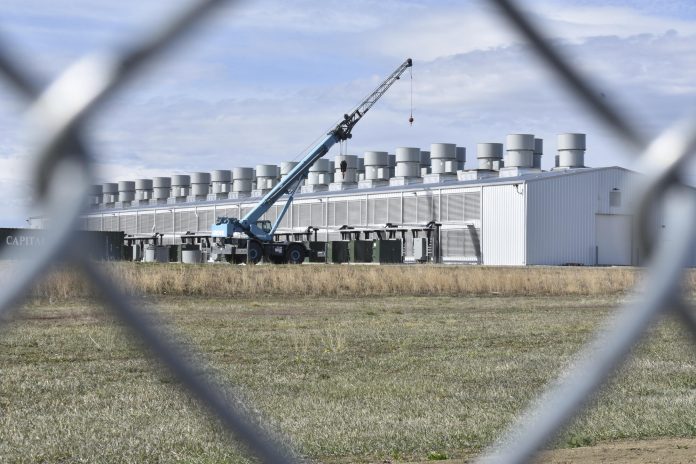“Can we make progress on our climate objectives and add cryptocurrency mining to the grid?” asked Assemblymember Anna Kelles, a Democrat who sponsored the bill. “That’s a valid question.”
The measure also requested a study, led by the New York Department of Environmental Conservation, to assess the environmental impact of the industry. Kelles said it will look into air and water pollution, as well as the potential for cryptocurrency mining to divert renewable energy resources from existing needs and amplify the burden on the state’s transmission infrastructure. The study could direct future legislation and regulation, she said.
Now certain legislators in Washington and Oregon want to apply emissions and clean energy standards to cryptocurrency mining operations which are currently exempt.
Cryptocurrency mining is the process by which bitcoin and other types of digital money validate transactions and create new coins. “Miners” drive the computers that donate processing power to a decentralized network that verifies virtual ledgers by solving complex equations generated by the currency’s protocol. The miners who first process those equations are rewarded with newly minted coins, or cryptocurrency.
Mining operations need powerful computers, often in specialized facilities that use large amounts of electricity. Last year the Biden administration published a fact sheet estimating that cryptocurrency consumes 0.9% to 1.7% of the nation’s electricity usage. The sector’s fast growth, the White House said, “could potentially hinder broader attempts to accomplish U.S. climate commitments to reach net-zero carbon pollution.”
But legislators in many states look at the sector’s expansion as a positive.
“We need to stake our claim now as a pro-crypto state,” said Missouri state Rep. Phil Christofanelli, a Republican, in an interview with Stateline. “It’s going to keep growing, and we want Missouri to be open and welcoming to this new kind of innovation and industry.”
Christofanelli has sponsored “right to mine” legislation that would forbid local governments from restricting cryptocurrency mining. The bill also would exempt cryptocurrencies from property taxes and specify that digital currencies don’t require the same licensing necessary for banks.
The bill, which passed out of committee earlier this month, is similar to measures proposed in Montana and Mississippi this year. The Montana bill, which passed the state Senate last month and awaits a hearing in the House, would prohibit zoning restrictions that target cryptocurrency miners. It also would direct the state Public Service Commission to provide electricity rates to miners that are consistent with those offered to other industrial customers.
“We just want to make sure the rules are known and fair, so if companies want to invest in Montana, they know what they are,” said state Sen. Daniel Zolnikov, the Republican who sponsored the bill. “Maybe something big happens, maybe not, but why wouldn’t we open the door and find out?”
While some see potential in cryptocurrency’s economic potential, others feel its growth could impede the road to achieving states’ clean energy goals.
“There’s only so much green electricity right now,” said Mandy DeRoche, deputy managing attorney for clean energy with Earthjustice, a nonprofit environmental law group. “We’re not going to meet our emissions targets with this extra load.”
DeRoche raised worries about electricity rates in areas that have to build new infrastructure to meet the demands of cryptocurrency mining, adding that the jobs created by the industry rarely live up to initial promises.
But industry advocates say their operations could be a benefit, rather than a liability, for the electrical grid. They claim cryptocurrency mining operations will create demand that will help developers build more wind and solar, creating a key “offtake” for that power when generation exceeds the demand from homes and businesses.
“It’s an alternate funding stream for these companies, so they’re going to be encouraged to build out renewable clean energy,” said Tom Mapes, director of energy policy with the Chamber of Digital Commerce, a blockchain advocacy group. “In areas where there’s surplus energy capacity, this really fits in.”
Mapes accepted that “bad actors” have given cryptocurrency mining a bad name, but said only a small proportion of miners have sought to use repurposed fossil fuel plants. He said queries around cryptocurrency’s use as a financial instrument have driven efforts to restrict mining, resulting in suspicion that other energy-intensive industries haven’t faced.

